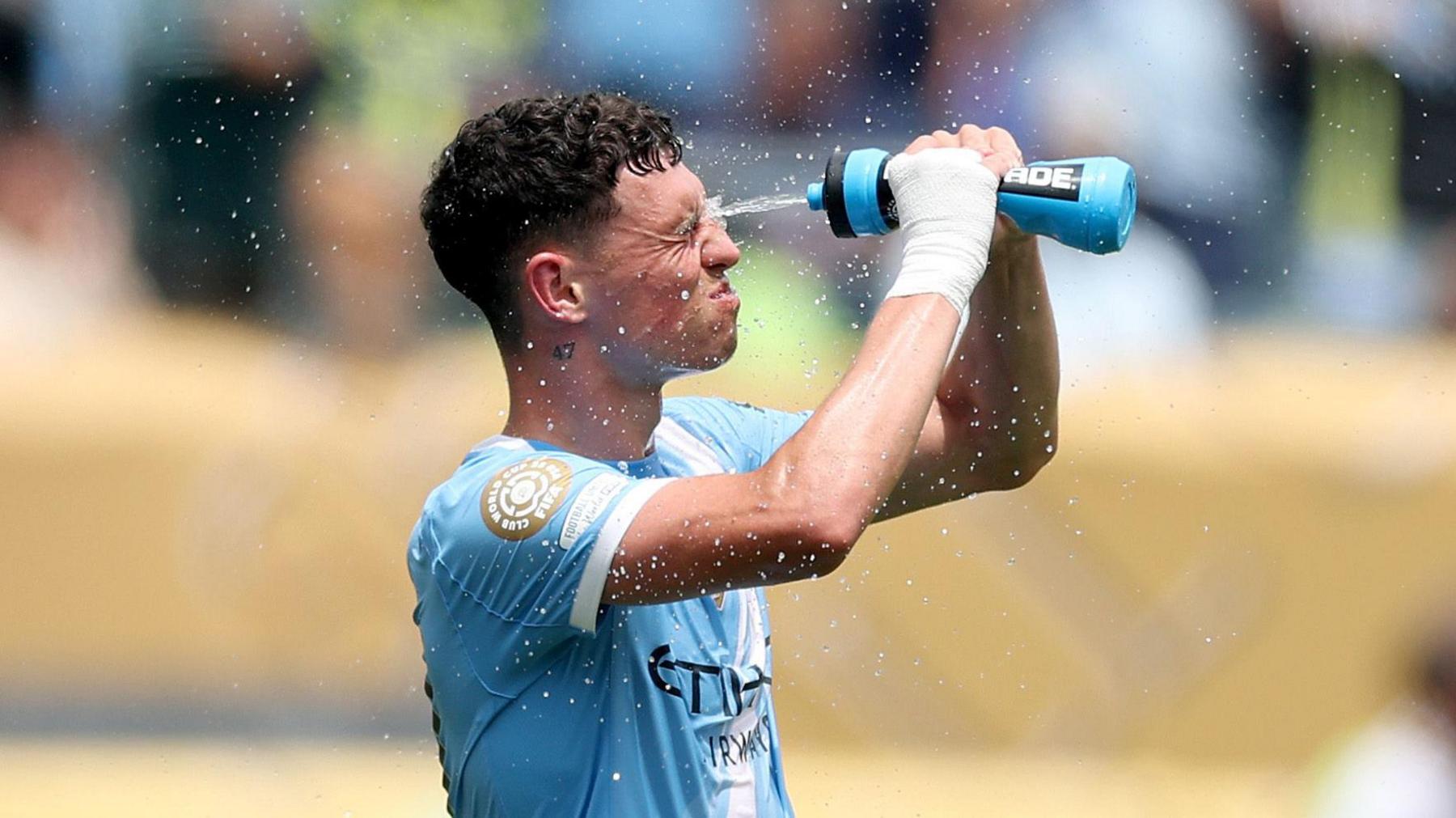World Cup Midnight Kick-Offs Tackle Risky Heat
As anticipation builds for the 2026 FIFA World Cup, a bold scheduling strategy is capturing attention: key matches involving top European teams will feature World Cup kick-offs past midnight UK time. This innovative approach addresses the extreme heat that plagued the recent Club World Cup, prioritizing player safety and performance. Co-hosted by the United States, Canada, and Mexico during peak summer, the tournament risks turning daytime games into endurance tests. Insights from recent events guide FIFA and organizers to refine timelines, ensuring the 2026 World Cup remains a global celebration of skill, not survival. These World Cup kick-offs balance broadcaster needs, fan preferences, and athlete well-being, promising an unforgettable event.
The 2026 World Cup will expand to 48 teams, featuring 104 matches across 16 venues, with the U.S. hosting 78. From group-stage thrillers to the July 19 final, millions will flock to stadiums. Yet, summer heat—often exceeding 40 degrees Celsius with high humidity—poses dangers. The Club World Cup highlighted this, with Paris Saint-Germain’s Luis Enrique criticizing midday starts and Chelsea’s Enzo Fernandez suffering dizziness. Victor Montagliani, Concacaf president and FIFA vice-president, discussed solutions at the Leaders Conference in Twickenham. “Kick-off times are always a headache in our region,” he said. Early slots suit European TV but mean scorching afternoons on the East and West Coasts.
FIFA aims for 3:00 PM local starts in shaded venues, but only five stadiums have roofs. Montagliani noted, “We can’t fit all early games in safe spots.” The group-stage draw on December 5 in Washington, D.C., will finalize fixtures, but commitments prioritize heat mitigation. This World Cup kick-offs strategy ensures endurance over entertainment, safeguarding players in grueling conditions.
The Heatwave Hurdle: Why World Cup Kick-Offs Are Shifting Later
The recent Club World Cup exposed heat risks, with temperatures near 40 degrees Celsius causing dehydration and exhaustion. PSG’s Los Angeles game felt like an “inferno,” per Luis Enrique. Fernandez’s collapse during Chelsea’s match underscored dangers. Montagliani explained, “Initial plans favored 12:00 local starts for global viewers, but U.S. summer heat makes it unsustainable.” With 11 days of four matches daily, open stadiums pose threats.
Historical examples like Brazil’s 2014 World Cup, with protests and heat, led to military deployments. The 2026 World Cup’s scale amplifies challenges, crossing time zones and weather patterns. Solutions include twilight slots for marquee games with stars like England, France, or Spain, shifting UK viewings to midnight. These World Cup kick-offs prioritize health, fostering a fair tournament where talent shines, not suffers.
This approach aligns with FIFA’s athlete-first ethos. Expanded to 48 teams, the event demands careful planning. Montagliani stressed collaboration with European media for ideal slots. “True perfection for broadcasts might not happen, but safeguarding athletes is paramount,” he said. These World Cup kick-offs ensure longevity, preventing heat from derailing the spectacle.
Balancing Global Fans: How Midnight World Cup Kick-Offs Affect Europe
European fans face challenges with delayed World Cup kick-offs, potentially starting at 02:00 BST. Slots like 17:00 and 20:00 BST align with prime TV windows but mean midday heat on the U.S. coasts. The Club World Cup showed European teams like PSG and Chelsea struggling in sun-baked games. Montagliani is consulting media to route key matches to domed venues like SoFi Stadium or MetLife Stadium, saving open fields for evenings.
This balance weighs broadcaster dreams against fan habits and player well-being. UK viewers may sacrifice sleep for midnight World Cup kick-offs, but it’s a small price for safer conditions. The tournament’s 104 matches, spanning three time zones, require flexibility. Early games in Florida’s humidity or Southwest’s arid heat risk health issues. By shifting, FIFA creates equity, letting teams focus on skill, not survival.
Fans adapt, with streaming platforms offering on-demand replays. The 2026 World Cup’s global appeal means diverse viewing times. These World Cup kick-offs foster inclusivity, ensuring European audiences engage without compromising athlete safety.
Navigating Political Static Amid World Cup Kick-Off Planning
External pressures add complexity to World Cup kick-offs. President Donald Trump’s threats to relocate unsafe games stirred debate. Montagliani dismissed it: “If I reacted to every politician’s quip, I’d fail my role.” FIFA’s control over logistics leaves no room for meddling, focusing on 16 venues. “Football eclipses them all,” he said, emphasizing the game’s unity.
Trump’s comments, tied to crime narratives in cities like Los Angeles and San Francisco, ignore FIFA’s contracts allowing termination for safety but restricting ordinary changes. The task force’s $625 million for security ensures resources. Cities like Boston and Dallas stand ready as backups. This resolve keeps World Cup kick-offs on track, proving politics won’t derail the event.
Glimpsing the Future: English Boosts in Club Tournaments?
Montagliani hinted at changes for the 2029 Club World Cup, aiming for more English representation. This year’s 32-team edition limited nations to two entrants, allowing Chelsea and Manchester City as recent Champions League winners. Snubbed teams like Liverpool and Barcelona sparked calls for expansion.
Montagliani envisions growth beyond 32 teams, mirroring the World Cup’s 48. “You can’t invite based on past glories,” he said. Easing the limit could add a third English team, like Arsenal, enriching the mix. Challenges include format overhauls and equitable spots, but it aligns with FIFA’s vision for a true club showcase. These World Cup kick-offs and club tweaks signal a forward-thinking era, prioritizing fairness and excitement.
In conclusion, World Cup kick-offs shifting to midnight times tackle heat risks effectively, balancing safety and spectacle. As FIFA navigates challenges, these strategies ensure the 2026 event thrills without endangering players. The tournament’s promise—underdog tales, rivalries, and cultural fusion—remains intact, ready to unite the world.
